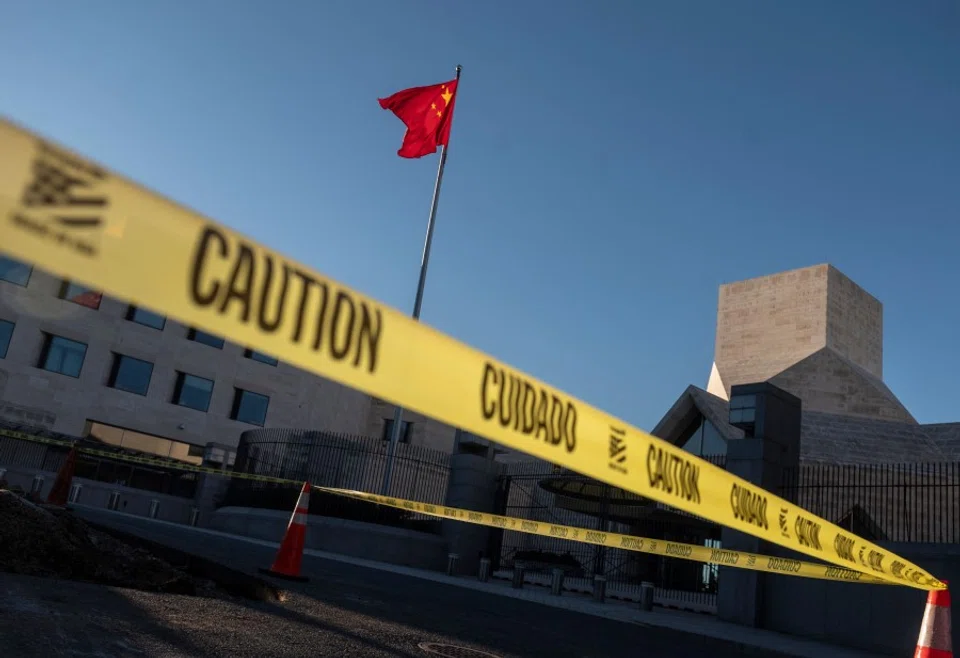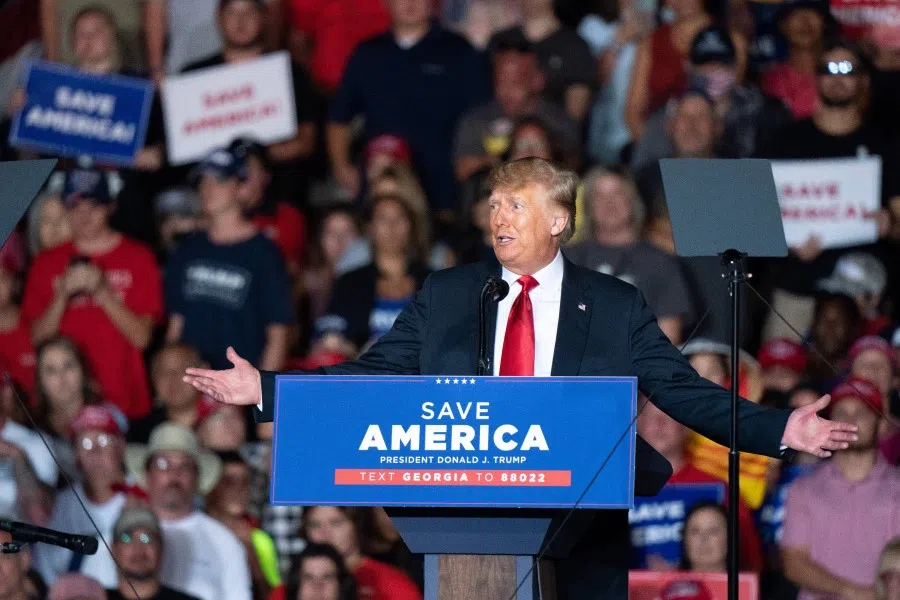The war on terrorism has ended. Can the US win the next battle of great power competition?
Twenty years after the historic 9/11 attacks on the US, the threat of terrorism has largely been contained and a new era of great power competition has returned. ISEAS researcher Daljit Singh notes that in the past century, the US has been adamant about not letting any single power dominate East Asia, and will most probably continue to do so. What will this new era be like when the US's competitor is a rising China? And what can Southeast Asian states do about it?

The terrorist attacks on the US on 11 September 2001, which were perpetrated by the same fanatics whom the US, Pakistan and Saudi Arabia had nurtured in the 1980s to defeat the Soviets in Afghanistan, occurred at the peak of US power and influence. Its economy dwarfed others and its technological prowess was unmatched. The power and wizardry of its military had been demonstrated in the 1992 Gulf War by devastating precision strikes by stealth aircraft and cruise missiles. This was something carefully studied by future rival China.
So dominant was the US after the demise of the Soviet Union that in 1999, French Foreign Minister Hubert Vedrine labelled it, with a mixture of envy and concern, a "hyper power". However, the 9/11 tragedy was to lead to a series of US mis-steps which ultimately diminished its power and standing.
The successful invasion of Afghanistan after 9/11, motivated by revenge and self-defence, was soon followed by the invasion of Iraq before victory in Afghanistan could be consolidated. The hubris of the neo-conservatives who advised President George W. Bush seemed to vindicate Vendrine's misgivings that the concentration of too much power can breed dangerous temptations.
...it was America that helped to defeat the ISIS caliphate it had foolishly helped to create.

The 2003 military campaign in Iraq that toppled Saddam Hussein morphed into a protracted insurgency by remnants of the Iraqi dictator's military and then into the rise of the deadly so-called Islamic State of Iraq and Syria (ISIS). The spectacle of America floundering in the quagmire diminished its prestige and the fear its power had inspired. Iran, nervous at the time of the invasion of Iraq, was able to cock a snook at Washington and press on with its nuclear bomb programme. Pakistan, a military ally of Washington, was emboldened to support the Taliban more confidently.
Yet the balance sheet was not entirely negative. America's global war on terror significantly diminished Al Qaeda and its affiliates, including those in Southeast Asia. Only America, with its vast resources, and working with other countries, could have achieved this. Likewise, it was America that helped to defeat the ISIS caliphate it had foolishly helped to create.
Meanwhile, in East Asia, China joined the World Trade Organization three months after 9/11. American and global businesses piled in investments, making it the factory of the world. The darker side of this accelerated globalisation was to become apparent with the decimation of sections of American manufacturing.
The economic and psychological consequences of the wars following 9/11, the global financial crisis of 2008, and unbridled globalisation were to come together to help propel the election of Donald Trump as president in November 2016. The troubling political polarisations in America today had earlier origins but they were exacerbated by the adverse events of the past 20 years.
For more than a century it has maintained a policy of opposing the domination of East Asia by a single power, by force if necessary as in 1941-1945. There is no reason to believe this will change.

With the terrorism threat contained, if not eliminated, the era of the war on terrorism has ended for America, but a new era of great power competition has returned. Multi-sectoral US-China rivalry is set to continue for the indefinite future and could take dangerous turns.
The phenomenal rise of China's power contributed most to the relative decline of US power. But despite its self-inflicted wounds, America still accounts for nearly a quarter of the global economy; the world's most powerful military; leadership in many important areas of high technology; and the best universities that attract talent world-wide. And it has strong allies. For more than a century it has maintained a policy of opposing the domination of East Asia by a single power, by force if necessary as in 1941-1945. There is no reason to believe this will change. America's gravest test may be its dysfunctional domestic politics.
Notwithstanding its impressive advances, China is not without significant challenges. It has an ageing population, slowing growth rates and vast inequalities. Over 40% of its people barely earn the equivalent of US$140 per month. Its per capita GDP in 2019 was a little over US$10,000 a year. This is comparable to Malaysia and far below the corresponding figure for the US, of over US$65,000. While its military power has grown enormously, it has no significant allies in Asia.
Contemporary China is driven not just by the dynamics of its history and civilisation, as some analysts suggest, but importantly by the organisational genius of the CCP and its Leninist mind-set that shapes the way it wields power within China and without.

Despite confident straight-line projections by some pundits, it is difficult to predict what the relative strengths of the two sides - China and the US and its allies - will be in ten or 15 years because of domestic uncertainties and the flux of alliances and partnerships being formed or reshaped.
Given its location, Southeast Asia will be at the centre of the 21st century great power contest. ASEAN and its member states need to have a correct appreciation, without wishful thinking, of what drives the two great powers and how Southeast Asian states can help shape a power balance to preserve their independence. They have come to terms with an increased Chinese influence but continue to fret about how it is exercised. Given America's acute concerns about China, its balancing role will depend upon on how it helps to support its perceived vital interests.
Any understanding of China that does not take account of the workings of the Chinese Communist Party (CCP) will be incomplete. Contemporary China is driven not just by the dynamics of its history and civilisation, as some analysts suggest, but importantly by the organisational genius of the CCP and its Leninist mind-set that shapes the way it wields power within China and without. This seems to have been underappreciated in policy and scholarly circles in the region.
This article was first published by ISEAS - Yusof Ishak Institute as a Fulcrum commentary.


![[Big read] When the Arctic opens, what happens to Singapore?](https://cassette.sphdigital.com.sg/image/thinkchina/da65edebca34645c711c55e83e9877109b3c53847ebb1305573974651df1d13a)


